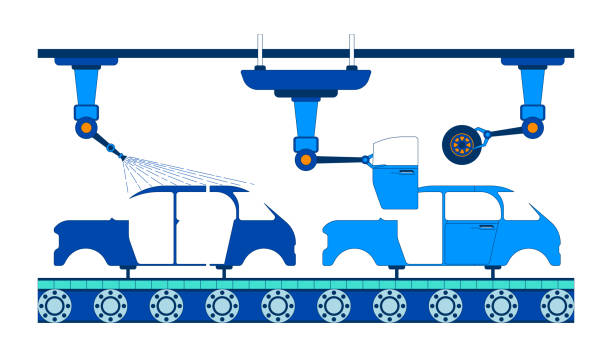The Role of Mobility in Manufacturing
In today’s manufacturing environment, the ability to transport materials and products with minimal friction is more than a logistical benefit—it’s a cornerstone of operational efficiency. The manufacturing process often involves complex and interconnected systems where each component must be in the right place at the right time to avoid costly delays. For this reason, mobility tools such as toolbox wheels have become indispensable. These tools facilitate the seamless movement of components across production lines, enhancing the manufacturing process. Inefficient transport methods can cause delays that disrupt workflows and affect delivery timelines. Manufacturers can maintain a steady flow by ensuring smooth transport, crucial for meeting deadlines and customer expectations.
Why Mobility Matters
The text emphasizes the importance of mobility in manufacturing, particularly in automotive production, where quick transportation of components enhances efficiency, reduces cycle times, and increases profitability. Effective mobility solutions help organizations adapt to demand changes and mitigate disruptions. It requires a strong infrastructure that enables swift transitions and coordination among departments, ultimately improving production outcomes and future-proofing operations.
Innovative Tools for Enhanced Mobility
Manufacturers increasingly use innovative tools like casters and wheels to enhance mobility for transporting heavy loads, reducing friction and wear on equipment. It improves productivity and allows quick reconfiguration of factory setups to meet diverse customer demands, enabling adaptability to new challenges without significant downtime.
Implementing Technological Advances
Technology integration in manufacturing has transformed mobility using automated guided vehicles (AGVs) and robotics. These advancements reduce manual handling, enhance precision, and improve efficiency and accuracy in production processes. Real-time monitoring and control of production lines help respond to operational issues quickly, minimize human error, and drive digital transformation. Overall, this technological integration is crucial for advancing modern manufacturing solutions.
Adaptation Leads to Growth
Manufacturing companies must emphasize enhanced mobility initiatives as a strategic need, not merely a tactical step. Modern mobility solutions can significantly increase productivity and profitability, allowing facilities to meet increased production demands without sacrificing quality or speed. This focus on mobility also fosters the creation of more customized and responsive supply chains, enabling companies to adapt to market fluctuations and consumer preferences. By embracing these advancements, manufacturers optimize operations and secure a competitive edge for future growth.
Building a Resilient Strategy
To build a sustainable and resilient strategy, manufacturers must integrate modern mobility solutions that align with current and future operational goals. Investing in advanced technologies ensures continuity of operations during disruptions and allows for agility in adapting to unforeseen events. A proactive approach to mobility helps companies safeguard their operations, seize new opportunities, and maintain competitiveness in the market.
The Future of Manufacturing Mobility
Manufacturing industries increasingly focus on mobility, requiring manufacturers to reassess their strategies and upgrade tools to remain competitive. By implementing a mobility-centric strategy, businesses can ensure seamless operations that adapt to evolving trends and innovations. Embracing mobility solutions will improve operational excellence while laying the framework for long-term development and innovation.

